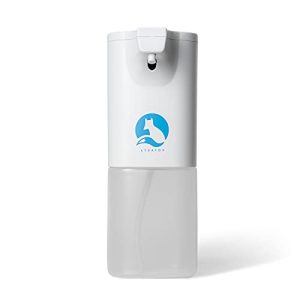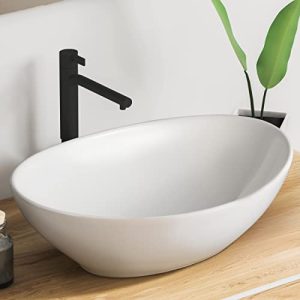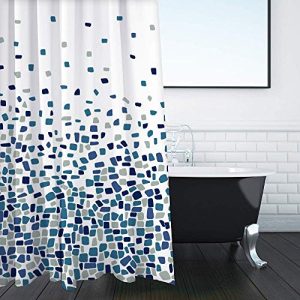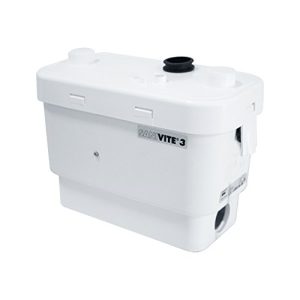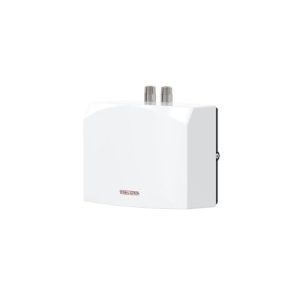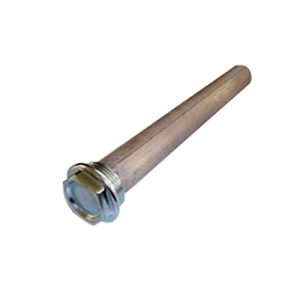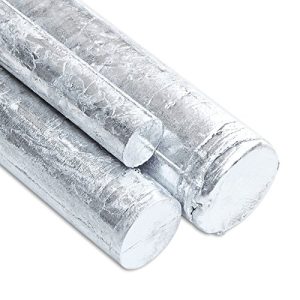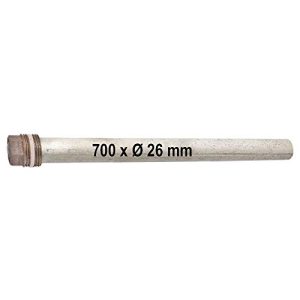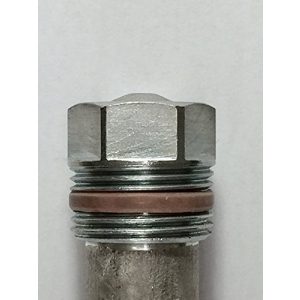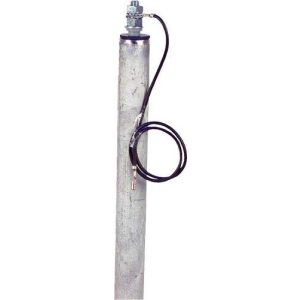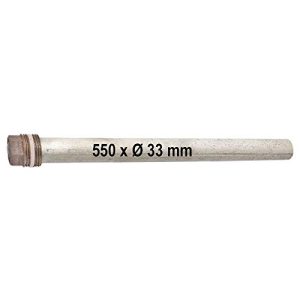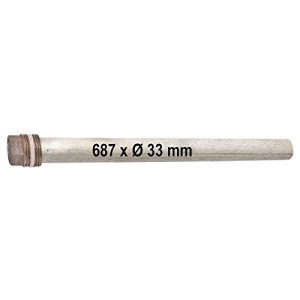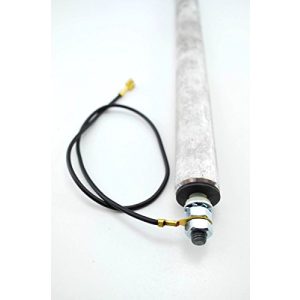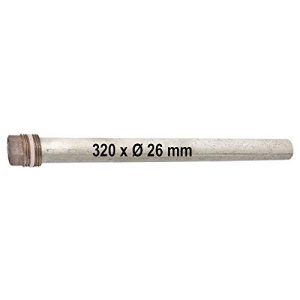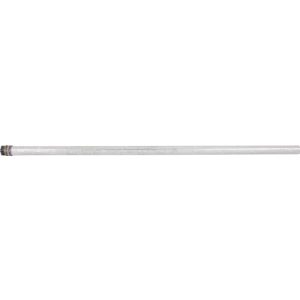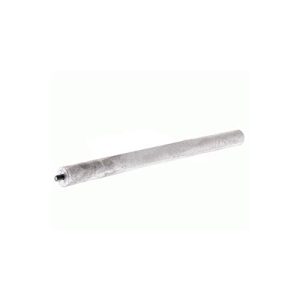Find the best sacrificial anode: Your guide from our test & comparison
Test winner in focus: Compare, evaluate and select the perfect sacrificial anode
- Sacrificial anodes play a central role in corrosion protection by corroding themselves to protect more valuable materials. They are made from less noble metals such as zinc, magnesium or aluminum and are often used in maritime and industrial applications.
- A prominent feature of sacrificial anodes is their ability to build protective potential. Through their sacrificial role, they extend the life of machines and structures, resulting in significant cost savings. Additionally, their environmentally friendly properties make them an ideal solution for sustainable companies.
- Sacrificial anodes have a high value in the market for corrosion protection solutions. Their importance results from their efficient protection of infrastructures against corrosion damage and their contribution to extending the service life of industrial systems and machines.
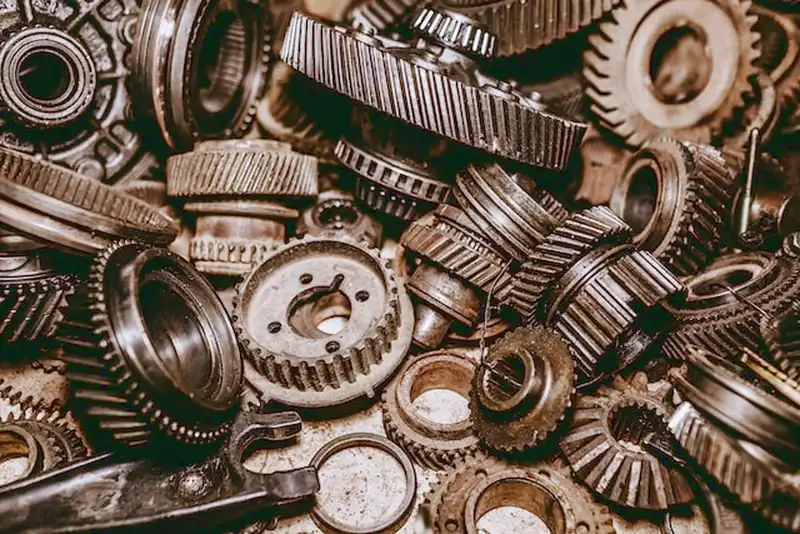
Sacrificial anode – bestseller in test & comparison: cheap, effective and recommended by experts
Why are sacrificial anodes so popular and what makes them so special? In this article I uncover the truth behind the bestsellers. We take a close look, separate marketing from reality and show you what really counts. Sacrificial anodes have proven to be indispensable, particularly in the corrosion protection category. I'll take you on one Travel through the world of anodes and explain why investing in one is worth it sacrificial anode really worth it and how you do it Buy sacrificial anode Find the best product for your needs.
Buying overview: Your guide to sacrificial anodes
- Protection against corrosion: Sacrificial anodes offer reliable Corrosion Protection for Hot water storage and heating systems.
- Affordability: Compared to other corrosion protection methods, sacrificial anodes are a cost-effective solution.
- Expert opinions: Renowned experts recommend paying attention to quality and material when purchasing sacrificial anodes.
- Various areas of application: Sacrificial anodes can be used in a variety of ways and protect a variety of metals.
- Longevity: The right one sacrificial anode can significantly increase the service life of devices and systems.
- Material selection: Decisive for the optimal protection is the selection of the material Anode.
- Ease of maintenance: The right one Anode allows for easy maintenance and trouble-free replacement.
Amazon: Sacrificial Anode – Effective protection against corrosion for your metal structures
What is a sacrificial anode and how does it work?
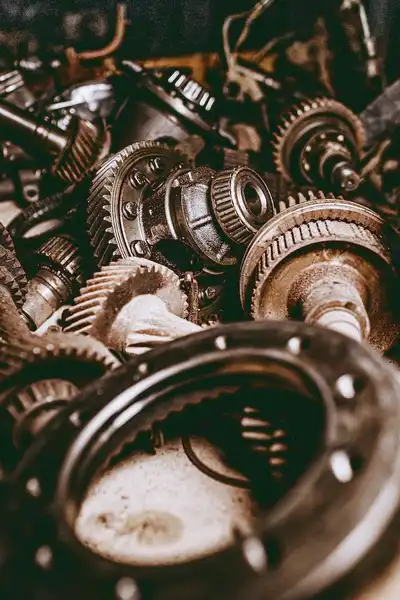
It is often used in watercraft such as boats or ships to prevent corrosion of metal structures such as the hull.
This plays a role in corrosion protection sacrificial anode, often too protective anode called, a central role. Their function is based on the electrochemical principle of cathodic protection. I am often asked: “How does a sacrificial anode work?” – the answer lies in the targeted sacrifice of the anode material to protect other valuable metal parts.
The Sacrificial anode material is crucial for its effectiveness. It is made from a baser metal than the object being protected, initiating a corrosion process. This sacrificial material corrodes instead of the more important metal components. For example, sacrificial anodes are often used in hot water storage tanks or in the maritime industry to protect expensive and essential components from corrosion.
The goal of one sacrificial anode is essentially sacrificing oneself so that the machine or structure being protected remains more durable and functional.
There are different types of anodes, depending on the location and the specific requirements Corrosion Protection. Choosing the right one Material of the sacrificial anode is crucial in order to achieve optimal protection while keeping costs within limits.
- Magnesium
- Aluminium
- Zinc
Each of these materials has unique properties that make them the best choice in certain environments and applications. During my research, I discovered that magnesium anodes, for example, are characterized by a particularly high negative voltage and are therefore often used in boilers, while zinc anodes are particularly strong in saltwater environments.
The most popular sacrificial anode types at a glance
Sacrificial anodes play a crucial role in protecting against corrosion. Different materials offer different advantages and possible uses. In this section I provide an overview of the three most common types: magnesium, aluminum and Zinc.
Magnesium sacrificial anode
Magnesium anodes are a common choice, particularly in hot water heaters. They are characterized by their high negative electrochemical voltage, which enables effective protection against corrosion processes. The Magnesium sacrificial anode Due to its electrochemical properties, it is ideal for use in areas with soft to normal water.
Aluminum sacrificial anode
Aluminum anodes, on the other hand, offer a longer service life and are characterized by a height Resistance to extreme temperatures. They are therefore often used in hot water systems. The Aluminum sacrificial anode is an excellent choice for systems that are continuously exposed to high temperatures.
Zinc sacrificial anode
Zinc anodes are primarily found in maritime environments such as ships or yachts. They are more suitable for salt water as zinc provides more stable performance in these conditions. The Zinc sacrificial anode reliably protects metal parts in seawater from corrosive processes.
Each of these anode types has its specific advantages and applications, and the choice should be made carefully based on the specific application and environmental conditions.
Amazon Sacrificial Anode: Extend the life of your watercraft with reliable corrosion protection
- Premium Quality Craftsman Quality
- Magnesium sacrificial anode Anode Protection anode for your hot water tank
- Various versions of signal anode, rod anode, chain anode
Installation and replacement of a sacrificial anode
The longevity and effectiveness of hot water tanks and others metallic devices depend heavily from a correct one Corrosion Protection away. This plays an important role Sacrificial anode installation. My goal in this section is to give you a detailed insight into how to create one sacrificial anode can install and change professionally, and which ones Sacrificial anode costs could arise.
Instructions for installation
I highly recommend following the manufacturer's instructions carefully to ensure the sacrificial anode is installed correctly. A step-by-step guide can be helpful:
- Switch off the power or gas supply to the device.
- Drain water to pressure to be removed from the system.
- Old woman Anode remove if present.
- Thread of the new one Anode Prepare with appropriate sealant.
- Screw the new sacrificial anode securely into the provided thread.
- Put the system back into operation and check for leaks.
Tips for switching
The Change sacrificial anode is also an important maintenance step and should be performed as soon as the anode is depleted. Here are some tips for making the switch:
- Check the condition of the anode regularly - at least once a year.
- Remember that some anodes in water heaters are special Tools needed for the change.
- For stubborn anodes, the application of rust remover make solving easier.
- Consider whether it makes sense to change the anode in cooperation with a professional servicing the device.
Cost factors and savings potential
The Sacrificial anode costs consist of the price of the anode itself and any installation costs. These can vary depending on the type of anode and the need for professional help. At the same time, we must not forget that avoiding corrosion damage can save significant costs in the medium to long term. Investing in a good sacrificial anode and changing it regularly not only protects your systems, but also your wallet.
Remember that corrosion can affect not only the functionality but also the safety of your devices. A proper one Sacrificial anode installation and regular change are therefore essential.
Sacrificial anode in use: practical examples and areas of application
As a specialist in the field Corrosion Protection I come across sacrificial anodes in various areas of application. The Sacrificial anode application area extends from civil to industrial facilities. Currently at Hot water storage Sacrificial anodes are an indispensable tool to achieve this To protect the system from corrosion and extend the lifespan.
- sacrificial anode hot water: In hot water tanks, sacrificial anodes maintain water quality by preventing corrosion-related contamination.
- Sacrificial anode drinking water: Especially when storing drinking water, it is of utmost importance to ensure the purity of the water. Sacrificial anodes play a crucial role here.
I saw an interesting application example in a local waterworks where sacrificial anodes were strategically placed to protect the tanks and pipelines. It was impressive to see how these simple components help keep our drinking water clean and safe.
Especially in hot water preparation, the use of sacrificial anodes is essential to avoid corrosion - a cornerstone for the hygiene and longevity of the systems.
- Checking the condition of a sacrificial anode every six months.
- Replace the sacrificial anode if more than 50% dissolved to ensure continued protection.
- Deciding on the appropriate anode typology depends on the water quality and temperature.
In my work I have found that investing in a high-quality Sacrificial anode drinking water and Sacrificial anode hot water Protects systems sustainably and reduces operating costs in the long term.
Get your sacrificial anode on Amazon now and protect your metal parts from unwanted corrosion
- Diameter 21,3mm
- Magnesium anode
- Weight of the anode: 507gr.
Buy sacrificial anode: This is what you should pay attention to
When purchasing a sacrificial anode, it is essential to consider various factors to ensure optimal protection against corrosion for your systems. The sacrificial anode material, the Sacrificial anode size as well as the Sacrificial anode rating and the reputation of the sacrificial anode manufacturer are crucial criteria that should influence your purchasing decision.
Choosing the right material
The choice of material is critical because not every material is suitable for every application. Magnesium anodes, for example, are ideal for hot water tanks in residential buildings, while aluminum and zinc anodes are preferred for use in industrial plants or maritime environments. Always consider the specific area of application for the one you choose Sacrificial anode material.
Choice of size and type depending on the area of application
The Sacrificial anode size must be chosen to suit the area of application. Large tanks require appropriately sized anodes, while smaller hot water tanks require more compact models. The choice of type also requires coordination with the respective operating conditions such as temperature and water quality.
Product reviews and manufacturer reputation
Longevity and reliability are essential features of high-quality sacrificial anodes. Find out more Sacrificial anode reviews about the experiences of other users and take into account both positive and critical feedback. Last but not least, the reputation and credibility of the sacrificial anode manufacturer a significant role. Renowned manufacturers often vouch for quality and sustainable customer service.
Comparison of the market leaders: sacrificial anodes in the test
As a passionate DIY enthusiast and expert in the field of corrosion protection, I have a comprehensive Sacrificial anode test carried out to compare the products of leading manufacturers and one sacrificial anode comparison to hire. My focus was on analyzing the price-performance ratio, the material quality and the adaptability of the anodes to different water qualities and temperature conditions.
High-quality sacrificial anodes from recognized brands usually not only offer improved longevity, but also adapt more effectively to complex requirements in various areas of application.
During my testing process, I paid particular attention to the following criteria:
- The resistance of the anode material compared to the process of electrolysis and external influences
- The Compatibility with different water qualities, important for systems with fluctuating water values
- Optimal Suitability for temperature ranges, relevant for heating systems and hot water tanks
- The price structure in relation to the expected Anode lifespan
my personal sacrificial anode comparison has shown that it is very important to know exactly what your requirements are Budget or operation to select the appropriate sacrificial anode. The results are crucial to optimize both costs and the protection of our valuable assets in the long term.
Amazon Sacrificial Anode: Worry-free water fun with long-lasting anti-corrosion equipment
- Magnesium anode
- 700x26
- DN25 1"
Service life and quality: What influences the effectiveness of a sacrificial anode?
As an expert in corrosion protection, I am convinced that Sacrificial anode lifespan and Sacrificial anode quality are critical factors in the integrity of water heating systems. These components are fundamental to the longevity of the systems and the avoidance of costly repairs. Below I will shed light on how both the texture and the Sacrificial anode maintenance can affect functionality.
Lifespan factors
The lifespan of a sacrificial anode depends on various variables. The water quality plays a particularly important role here, which, like the operating conditions of the water boiler, influences the corrosion rate. In addition, the physical size of the anode is crucial - the larger the sacrificial anode, the longer its lifespan typically.
Quality and texture
But not every type of anode is the same. High quality sacrificial anodes are made of pure and robust materials that ensure even wear and thus provide continuous protection. Cheaper alternatives, on the other hand, may contain contaminants that affect their effectiveness and durability.
Regular maintenance and inspection
The importance of regular maintenance cannot be overemphasized. Periodic inspection by trained professionals can prevent a sacrificial anode from becoming ineffective. This is essential to ensure continued protection and a long life Sacrificial anode lifespan to secure. It is clear: a well-maintained sacrificial anode is a high-quality sacrificial anode.
- Checking the condition of the anode
- Replace if there is significant wear
- Further measures to optimize corrosion protection
Corrosion protection in practice: sacrificial anode in the hot water tank
An essential one Element in the fight against corrosion in our hot water systems Sacrificial anode hot water tank. These anodes perform an important protective function for the containers and heating elements in hot water systems. Their use prevents destruction caused by rust and thus significantly increases the longevity of the equipment.
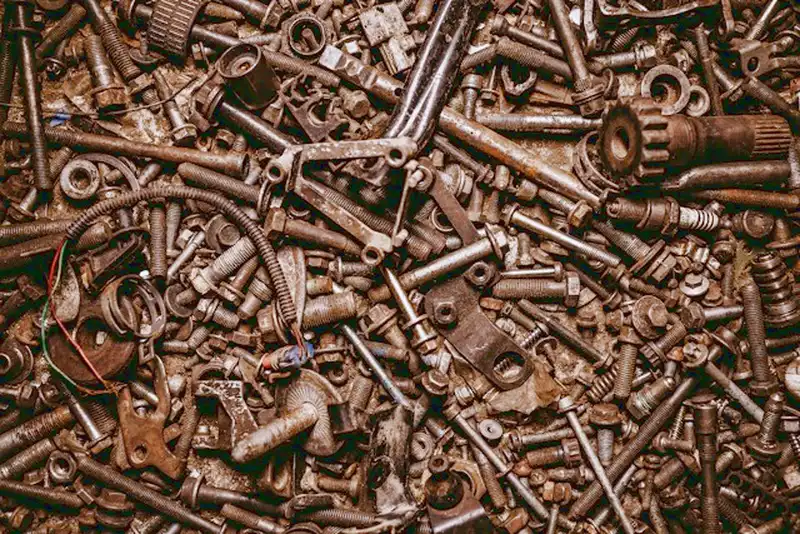
Sacrificial anodes are usually made of zinc, aluminum or magnesium and are placed near the metal parts to be protected.
thanks to the sacrificial anode Metal parts of the memory are protected by a simple but effective principle: the anode made of one less noble metal is primarily affected by corrosion, which means that the actual hot water storage material is spared. This process is called Corrosion protection hot water, which ensures hygiene and safety in our everyday lives.
- Installation of the sacrificial anode in the hot water tank
- Regular inspection and replacement of the anode
- Investing in quality anodes for continued efficiency
Investing in a high-quality sacrificial anode forms a foundation for maintaining the value of our hot water tanks and ensures unrestricted comfort in our home. As a user of such a system, I have become aware of how important integrated corrosion protection is for the long-term economic viability and functionality of my system.
Sacrificial anode, bestseller for water-related rust protection
Anyone who has a dishwasher will know the effect. A small amount of damage to the cutlery basket will reveal or cause tiny rust enameled pot has a damaged area. During the rinsing process, rust particles can come off, which then settle mainly on cutlery. Not only does it look unsightly, it can also only be removed mechanically. A balled up piece aluminum foil in the cutlery basket can prevent this. The aluminum foil acts as a sacrificial anode, so to speak. Do you remove that? Piece of aluminum foil you can see that there has been a surface change here. This sacrificial anode comparison would like to tell you a lot more about sacrificial anodes.
What does a sacrificial anode do?
Anyone who might still remember the chemistry lessons in the... Schooling If you remember, you might remember the electrochemical voltage series. She assigns each of the metals a place in the row. The metals in the lower row are less noble than those in the upper row, which means that the exchange of electrons always takes place from the less noble to the more noble metal. Ale Example: Zinc is less noble than iron. This means that the zinc electrodes will always jump to the iron and not the other way around. Zinc rusts - iron does not. Water acts as an electrolyte.
- Areas of application
Sacrificial anodes are not only used in boilers or storage tanks as well as in heating technology. Our sacrificial anode recommendation also applies to the pump in the pond or a galvanized roof. Sacrificial anodes are even essential in shipping, and suitable sacrificial anodes are required for underground pipelines or drilling rigs.
Use in different types of water
Different sacrificial anodes are required for different types of water.
| water quality | Features | Sacrificial anode selection |
| Freshwater | Low electrical conductivity | In magnesium drinking water containers |
| Brackish water | Slightly higher salt content | Zinc sacrificial anode, sometimes also magnesium sacrificial anode |
| salt water | Very high salt content with best electrical conductivity | Zinc sacrificial anode |
Our sacrificial anode rating
As we mentioned, sacrificial anodes are essential for many applications. In the Budget They are usually needed as sacrificial anodes for dishwashers or hot water boilers. Basically, wherever metal meets water, something will rust!
Sacrificial anode for hot water tanks
A galvanic cell is created in it by combining two different metals meet in an electrolyte (water). The sacrificial anode corrodes while the sheet steel casing of the hot water tank remains intact. Even if this cover is galvanized or enamelled, there may be tiny defects. Over time, rust will form and the device will leak. A rod or chain-shaped sacrificial anode made of magnesium prevents this. See also our sacrificial anode comparison winner from the table. If the sacrificial rod anode is worn out, it must be replaced, which is usually necessary at intervals of around 2 years. The hot water tank should also be flushed as the magnesium accumulates as sludge ground drops off.
Sacrificial anode for pool
Especially with salt water pools, which are becoming increasingly popular, they are very pleasant for people, but not for the material. The metal ladder is often the weak point here. If it is made of stainless steel, the oxygen dissolved in the water attacks the metal and it oxidizes. The cause is the galvanic cell, where electrodes are removed from the metal. The base metal here is the pool ladder. A Piece of base metal, the sacrificial anode, can stop this process.
This is how you test a sacrificial anode
There are three different measuring methods: visual inspection, the use of a signal anode and current measurement. The manufacturer's operating instructions must always be followed.
- During the visual inspection, the sacrificial anode is removed. If the diameter of the sacrificial anode is quite small or there are a lot of deposits on it, it needs to be replaced.
- When measuring current, the sacrificial anode, which is installed in isolation, does not have to be removed. The test is carried out using an anode tester or resistance measuring device. If the measurement is > 0,3 mA, the sacrificial anode is OK; if it is < 0,3 mA, a visual inspection must be carried out to judge the condition.
- Using a signal anode is the easiest way to determine the consumption of a sacrificial anode. If the signal generator shows a red color, the sacrificial anode is used up.
Our sacrificial anode purchase advice
We have to give you a sacrificial anode purchase recommendation for all devices or areas in which metal (except stainless steel) comes into contact with water. If a sacrificial anode is installed in a boiler or water heater, it must be changed at the specified intervals. The same goes for boats, pools or other water containers.
What do I need to pay attention for?
First you have to pay attention to the manufacturer's instructions as to whether a sacrificial anode is installed and whether it can be changed by a layperson. This is easier on a boat or pool because the anode is usually installed visibly. The most important factor when installing is the thread type and length of the sacrificial anode. Once you have determined this, you can purchase a sacrificial anode from specialist retailers or online.
Which material is the right one?
Magnesium sacrificial anodes are generally used for installation in hot water devices. For salt water it should be zinc.
Is replacing a sacrificial anode inexpensive?
When replacing a sacrificial anode you have to budget around 50 euros, plus the installation if you have the change carried out by a specialist. A sacrificial anode price comparison on the Internet can provide clarity.
What does Stiftung Warentest say about sacrificial anodes?
Unfortunately, we have not yet found a sacrificial anode test report from Stiftung Warentest. However, if you want to change a sacrificial anode yourself, you will find many instructions on how to do so on the Internet.
Experience the reliable protection of Amazon's sacrificial anode - so your metal structures last a long time
- Length: approx 350 mm
- Standard: DIN EN 1179
- Material: Fine zinc Zn 99,995%
The cost-benefit analysis: Is a sacrificial anode worth the investment?
When evaluating whether the investment in a sacrificial anode is actually worthwhile, all aspects should be carefully considered. It's not just that sacrificial anode price itself, but also the long-term financial and functional benefits it brings.
Predictable replacement costs
The Cost of changing a sacrificial anode can vary, but are generally affordable for most households. The [Price for a sacrificial anode](#) depends on factors such as material type and size. But these expenses are predictable and can be budgeted for home maintenance.
Savings through effective corrosion protection
The actual financial benefit of the sacrificial anode is reflected in the costs saved through effective corrosion protection. It prevents early damage to hot water tanks and boilers, which can lead to expensive damage Repairs or even complete ones Exchange could lead. These savings are often far greater than the initial cost of the anode itself.
Long-term benefits for home and heating systems
In the long term, a sacrificial anode not only increases the lifespan of hot water and heating systems, but also ensures a higher Efficiency and operational reliability of these systems. It is therefore a worthwhile investment that not only protects your wallet, but also contributes to maintaining the value of the house.
- Extended lifespan of water boilers and heating systems
- Less maintenance and repair costs
- Increased protection against unforeseen corrosion damage
Conclusion
After carefully examining numerous practical examples and comprehensive test results, I came to the conclusion that investing in a sacrificial anode offers significant advantages for the longevity and efficiency of hot water storage tanks and heating systems. The Sacrificial anode recommendation is based on the essential role it plays in protecting against corrosion - an aspect that should not be underestimated.
The sacrificial anode is more than just a purchase; it is an investment in the future and security of your own building technology.
To be the best possible Sacrificial anode advantages To use it, it is crucial to make the selection based on specific criteria such as material, size and area of application. The appropriate sacrificial anode maximizes corrosion protection, which means that follow-up costs due to damage can be avoided in the medium and long term.
- Careful selection of materials according to the conditions of the place of use.
- Matching the anode size to the respective heating or water system.
- Taking the operating environment into account to ensure optimal protection.
It is therefore clear that the Sacrificial anode investment contributes significantly to increasing the cost-effectiveness and functional reliability of hot water and heating systems. Based on these findings, I can confidently recommend the use of a sacrificial anode.
FAQ
What is a sacrificial anode and how does it work?
A sacrificial anode is an essential component in cathodic corrosion protection. It consists of a less noble material than the metal to be protected and therefore acts as an attraction for corrosion processes. This protects the actual component from rust by corroding the sacrificial anode itself.
What types of sacrificial anodes are there?
There are mainly three types of sacrificial anodes: magnesium, aluminum and zinc anodes. Each of these anodes is selected depending on the area of use and the specific requirements of the material to be protected and the environmental conditions.
How is a sacrificial anode installed?
Installing a sacrificial anode requires careful steps, usually described in the included instructions. It is important to correctly place and connect the anode to the metal part to be protected.
When should a sacrificial anode be changed?
A sacrificial anode should be replaced as soon as it is visibly corroded and there is no longer sufficient material to provide effective protection. The lifespan of an anode depends on many factors, such as the material and operating conditions.
How much does it cost to change a sacrificial anode?
The Cost of changing a sacrificial anode vary depending on the anode size, material type and whether you carry out the change yourself or hire a professional. In addition, there may be additional costs for the required tools.
Why is a sacrificial anode important, especially in the drinking water and hot water sectors?
In hot water storage tanks and drinking water systems, the sacrificial anode prevents corrosion, which not only reduces the service life of the systems but can also negatively affect water quality. This ensures the longevity of the systems and hygienic water.
What should you pay attention to when buying a sacrificial anode?
It is important to choose the right material and the right size for the specific area of application. Reviews and the reputation of the manufacturer can also provide information about the quality and longevity of a sacrificial anode.
How do the different materials of sacrificial anodes differ?
Magnesium anodes are ideal for freshwater applications such as heaters and hot water boilers, while aluminum anodes are preferred due to their durability and resistance to high temperatures. Zinc anodes are particularly suitable for saltwater environments, such as in shipbuilding.
How long does a sacrificial anode last?
The lifespan of a sacrificial anode depends on various factors, such as the material used, the quality of the water, and the extent and type of use of the system. Regular inspection can help make the most of their lifespan.
Are there different sacrificial anodes for different vehicles and devices such as boats or cars?
Yes, there are sacrificial anodes specifically designed for boats and ships that are designed for the saltwater environment. Special corrosion protection measures are more common for cars, which are not necessarily based on sacrificial anodes.
Can you change a sacrificial anode yourself?
In many cases it is possible to change a sacrificial anode yourself. To do this, it is important to follow the instructions carefully and use suitable tools. However, if there are any uncertainties or technical systems, such as drinking water systems, a specialist should be consulted.
What potential savings does the use of a sacrificial anode offer in the long term?
By using a sacrificial anode, the risk of costly repairs and premature replacement of systems due to corrosion damage can be significantly reduced. The purchase costs of the anode are often amortized by extending the service life of the protected devices.

